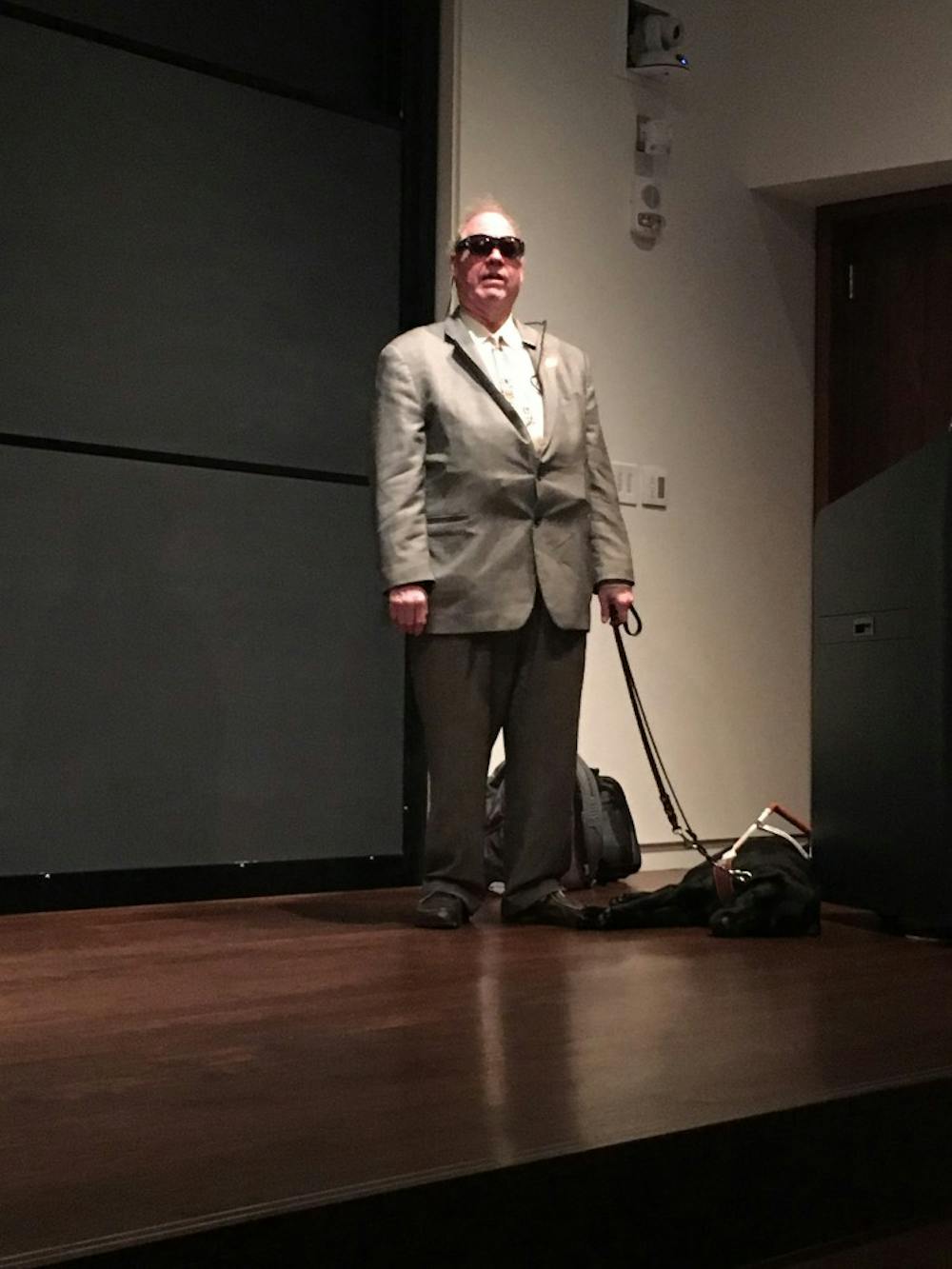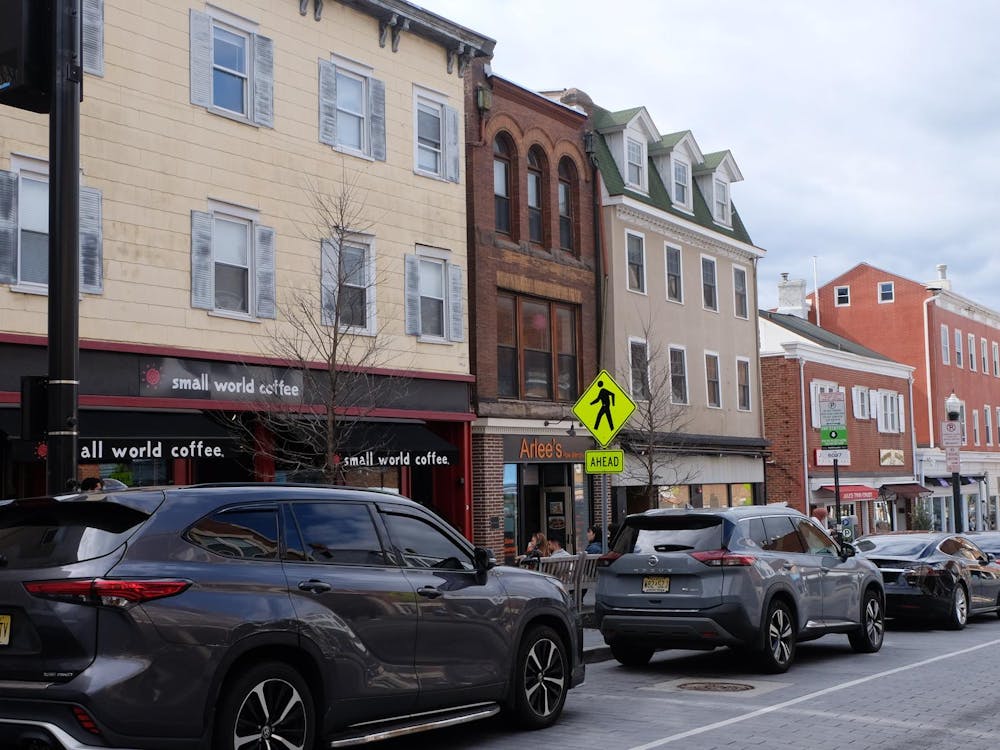Michael Hingson, blind motivational speaker and survivor of the Sept. 11, 2001 attacks, spoke on Friday, Sept. 14 about how he changed his disability into an asset and how he has battled persistent discrimination. Hingson was invited to speak to celebrate the 9th annual Inclusion in Science, Learning a New Direction conference on disability. Hingson’s book, “Thunder Dog: The True Story of a Blind Man, His Guide Dog, and the Triumph of Trust,” debuted on the New York Times bestsellers list.
“[The blind] don’t like to be told that we can’t do something,” Hingson said with a smirk. “It only makes us want to do it more.”
Hingson was born two months premature and placed in an incubator. At four months old, he still did not demonstrate sensitivity to bright sunlight and was declared blind.
Having been blind his whole life, Hingson has had to repeatedly fight the perceived stereotype that the blind can’t accomplish as much as sighted people.
“A lot of people believe that the blind can’t do stuff,” Hingson said. “And it’s a self-fulfilling prophecy because the blind [then] grow up thinking that they can’t do stuff.”
However, Hingson pointed out that not everything is the way it looks and that sighted people also have disabilities. He joked that Thomas Edison invented the light bulb because sighted people are disabled in the dark, whereas the blind are not. He added that statistically, blind drivers have had proportionally fewer accidents than sighted drivers.
According to Hingson, prior to the early 1980s, no person with a disability could buy life insurance. He added that insurance companies told the blind population that being blind “by definition” means that they will die sooner than the rest of the population.
However, Jim Omvig, a blind man from Iowa, demanded that the National Association of Insurance Commissioners produce the evidence, and no statistics could support the statement. In fact, Hingson emphasized that there is no statistical evidence that blindness is a cause of early death.

Rather than viewing loss of sight as a weakness, Hingson embraces his blindness. When he was searching for a sales job, his wife reminded him to turn his perceived disabilities into assets.
In his cover letter, Hingson wrote to his employer that as a blind person, he has had to “sell” himself all his life just to be able to survive. For example, he has had to convince others to let him rent an apartment, enter grocery stores with his guide dog, and board airplanes.
“Do you want to hire someone who sells for [only] eight to ten hours a day and goes home and the job is done,” Hingson asked, “or do you want to hire somebody who truly understands sales and sells 24 hours a day as a way of life?”
He was hired for the job in 1989. Hingson also pointed out other benefits of hiring the blind that employers may not consider.

“Blind people are more likely to stay on the job with you,” said Hingson. “If you’re loyal to them, they’re going to be loyal to you because they appreciate the fact you’ve given them the job opportunity, especially since the majority of the blind can’t get jobs.”
Hingson gave a particularly remarkable example of how the blind are capable of taking care of themselves: the story of how he was able to safely escape the 9/11 terrorist attack. Hingson’s office was located on the 78th floor in the North Tower of the World Trade Center. After escaping to the ground floor with his guide dog and one of his friends, David, Hingson was left stranded when David panicked and left Hingson behind. However, Hingson navigated Fulton Street by himself and caught up to David on his own. Amid David’s numerous apologies, Hingson proved to himself his ability to be independent.
The lecture was held in Maeder Hall Auditorium in Andlinger Center at 2:30 p.m. on Sept. 14, 2018.








